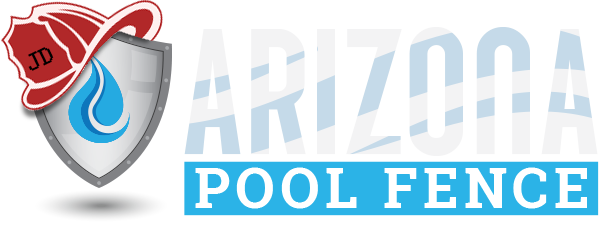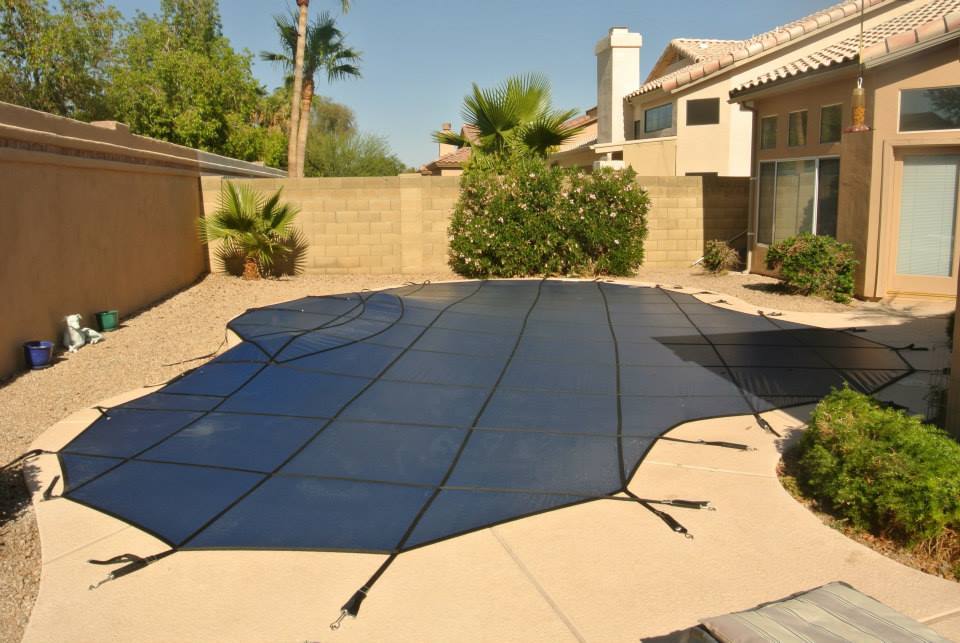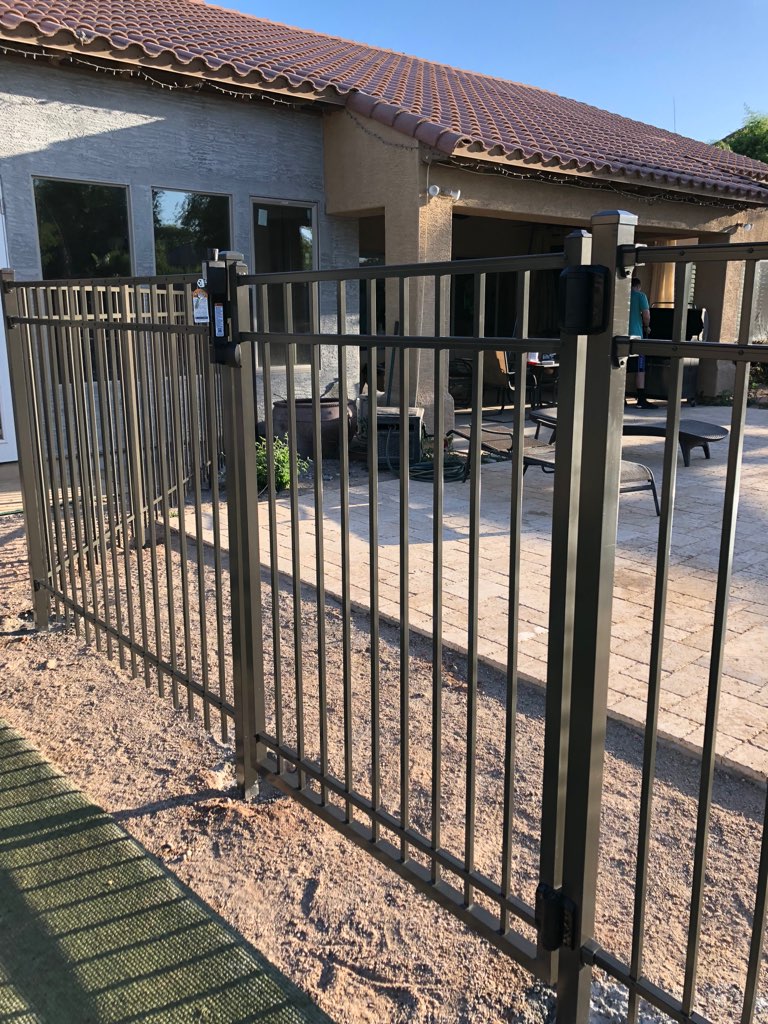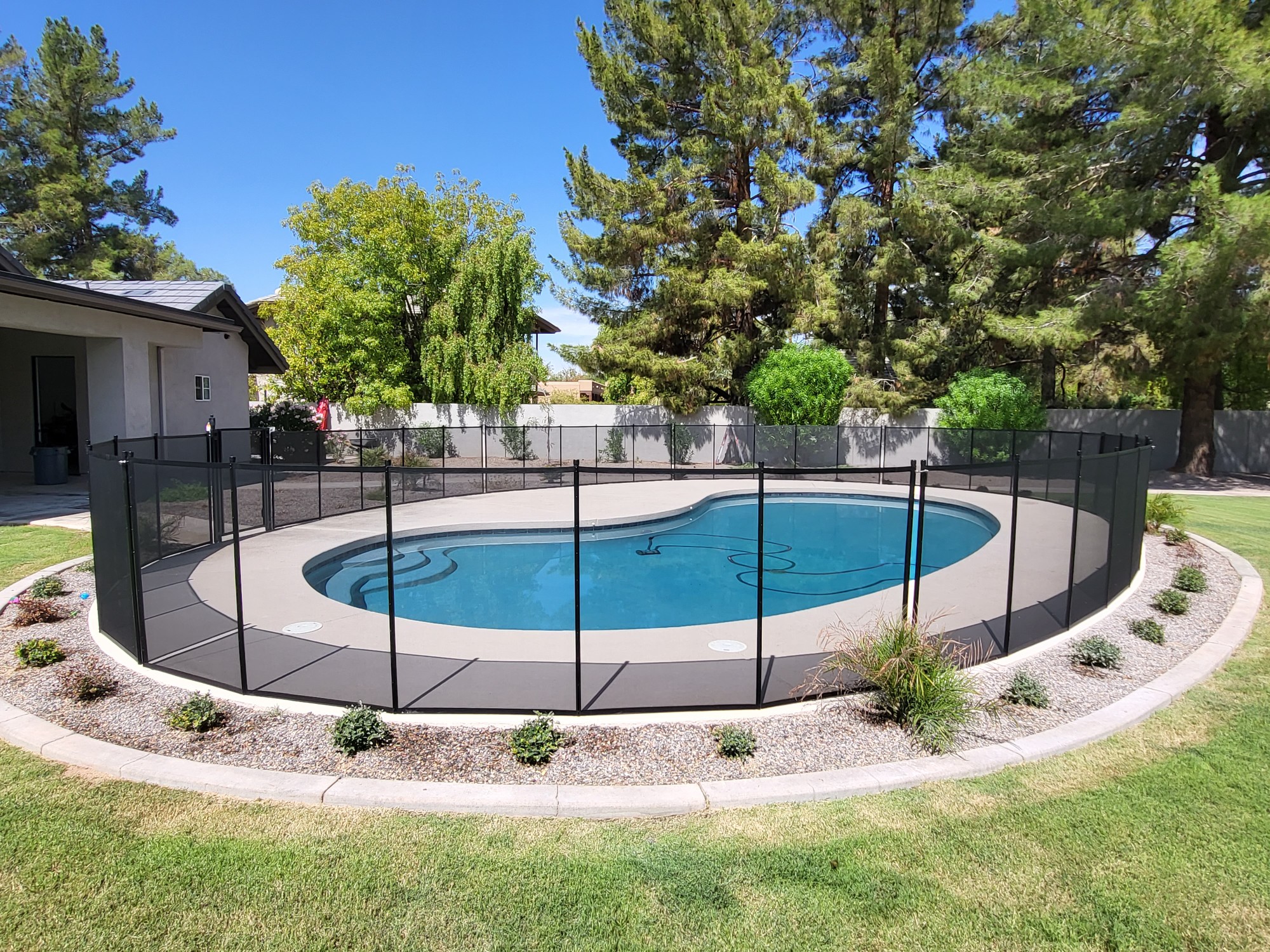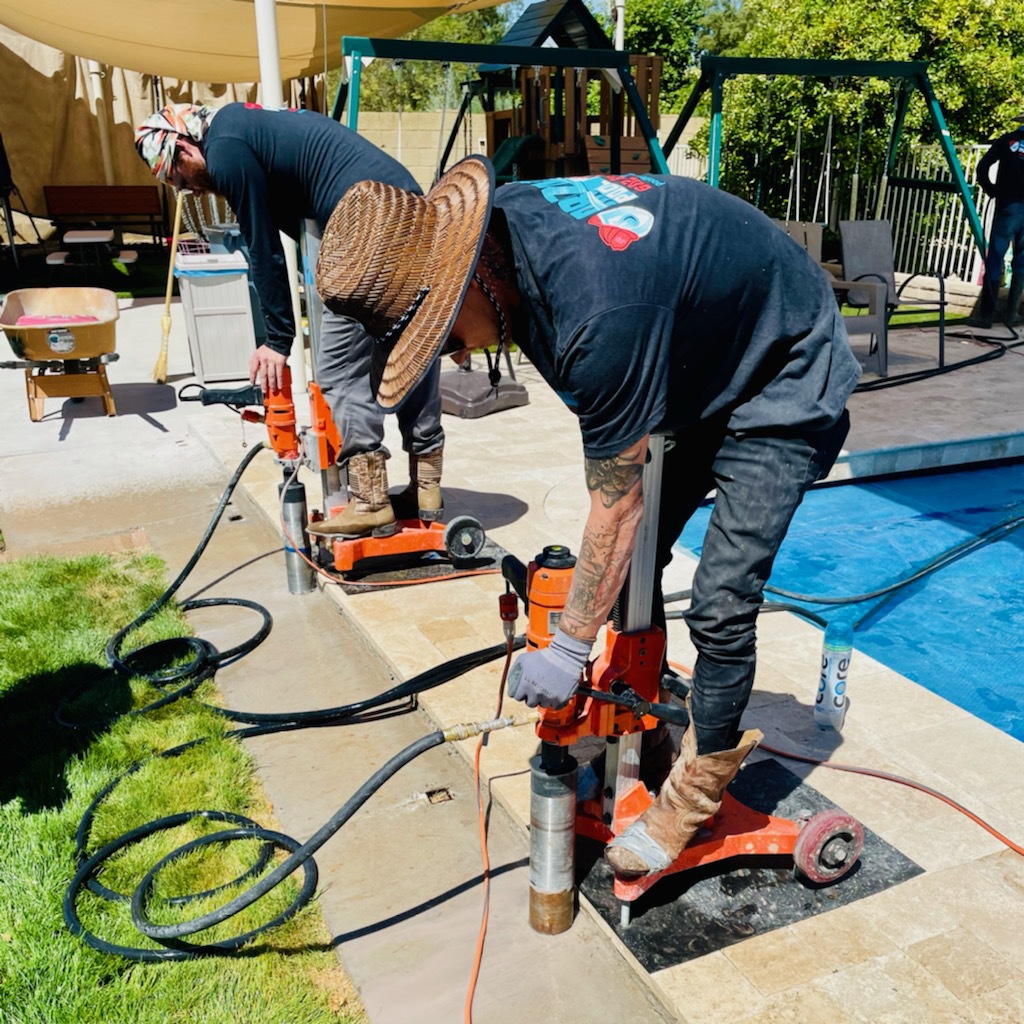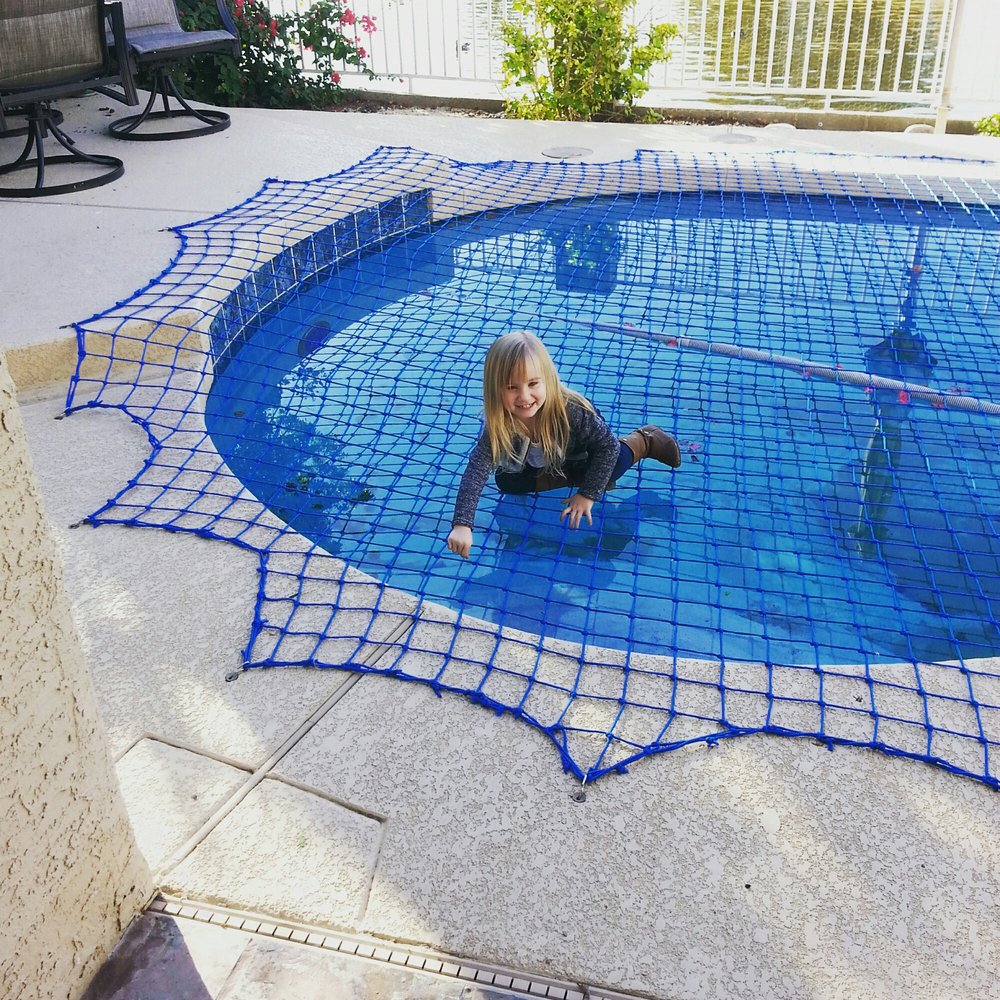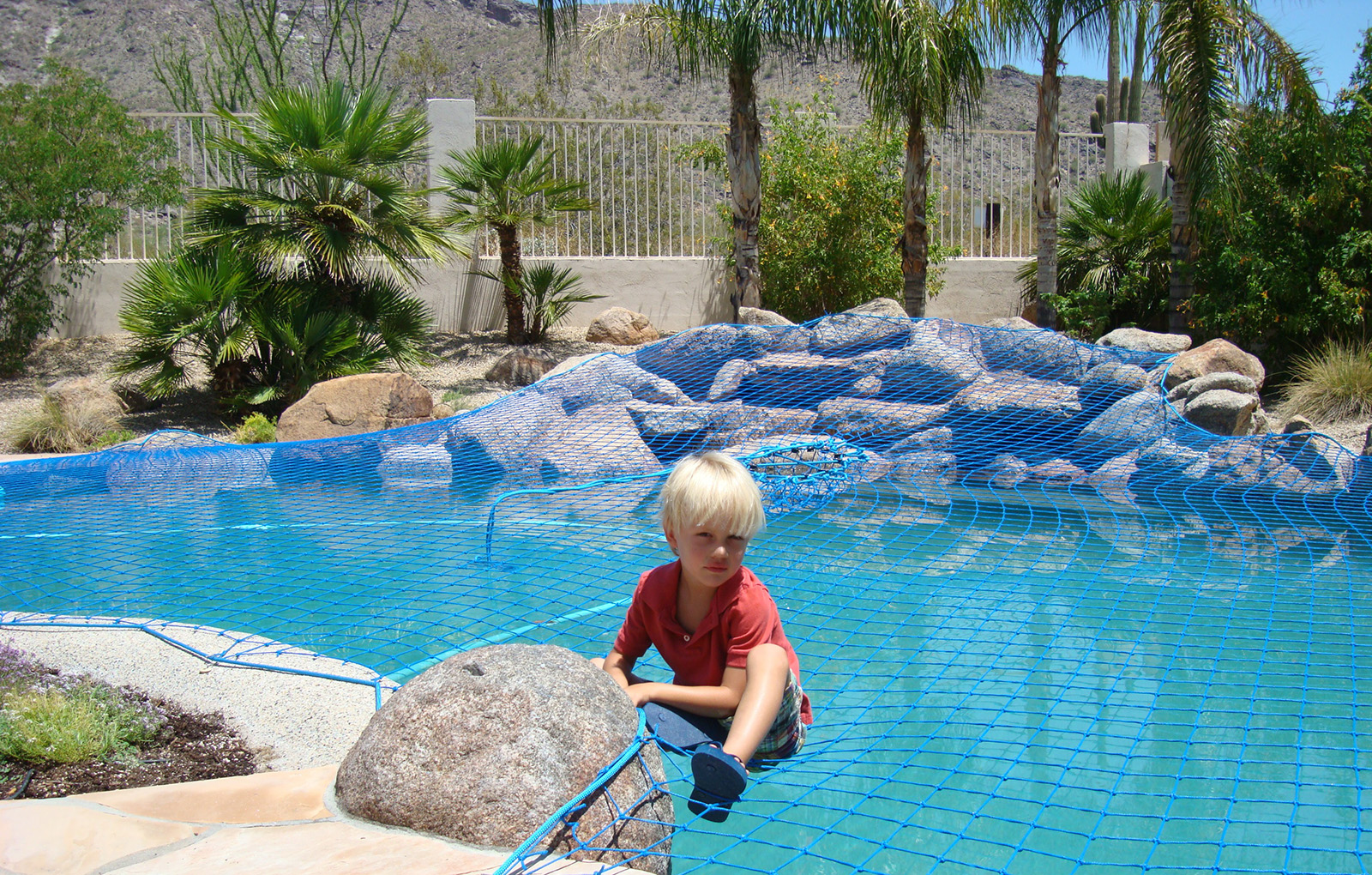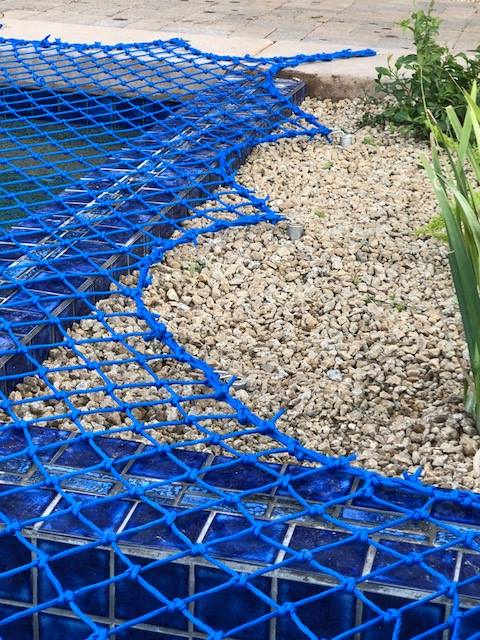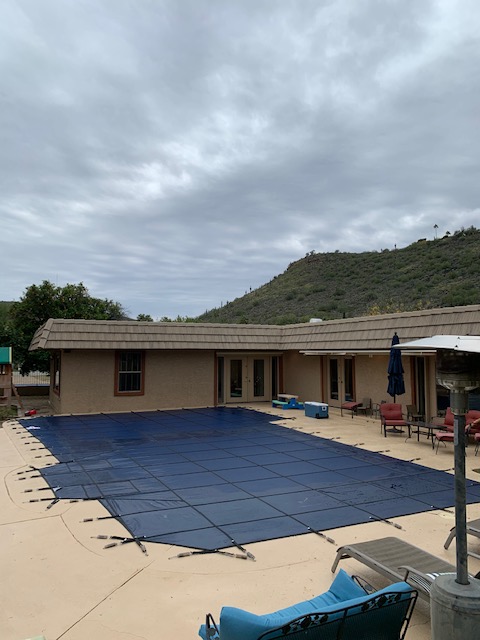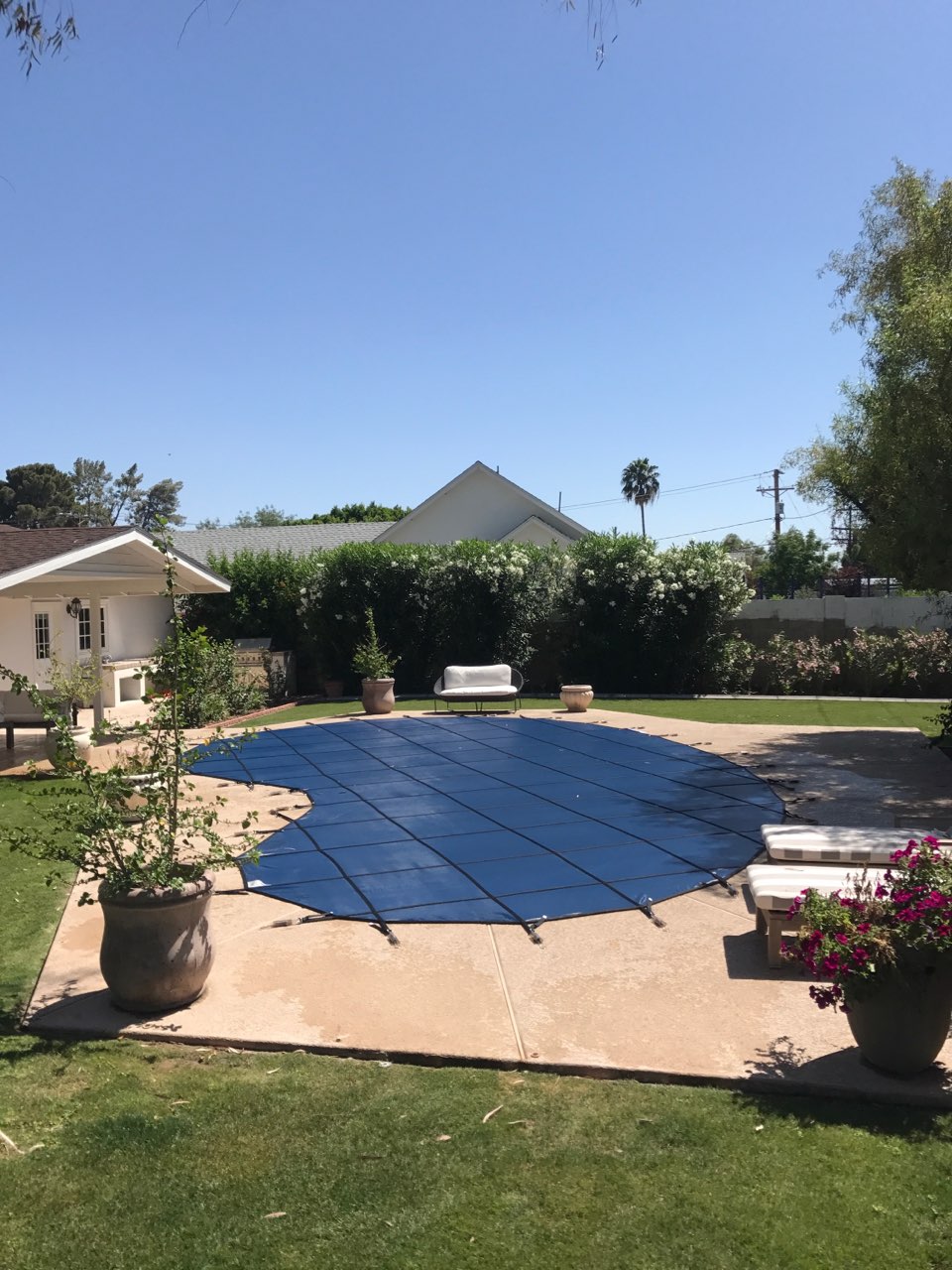We install the highest quality pool fences, pool covers, and safety gates.
Arizona Pool Fence
1513 W Hatcher Rd, Phoenix, AZ 85021
In the warm, sunny landscape of Arizona, owning a pool is as much about leisure as it is about responsibility. A significant aspect of this responsibility is ensuring pool safety, particularly in homes with young children and pets. While pools offer a refreshing respite from the Arizona heat, they also pose safety risks. Read on for some of the advantages and drawbacks of three primary pool safety solutions: pool fences, nets and covers.
Pool fences are a top choice for pool safety, offering a highly effective barrier around the pool. Their design ensures a secure environment, significantly enhancing safety and providing homeowners with peace of mind. This safety feature not only prevents unwanted access to the pool but also integrates seamlessly with different landscaping styles, making it a practical and aesthetically pleasing option for ensuring pool safety.
Pros:
- Optimal Safety: The primary advantage of pool fences is their ability to significantly reduce the risk of accidental falls into the pool. This feature is particularly crucial for households with young children or pets, where the danger of unsupervised access to the pool is a constant concern. A well-constructed pool fence can ensure that such tragic accidents are greatly minimized.
- Customization Options: One of the appealing aspects of pool fences is their versatility in design. They are available in a myriad of materials, including wrought iron, mesh, or vinyl. This variety allows homeowners to choose a fence that not only meets their safety needs but also blends seamlessly with their home's architectural style and personal aesthetic preferences. Whether you're looking for a traditional look or a more contemporary design, there’s a pool fence to suit every taste.
- Permanent Solution: Once installed, a pool fence is a long-term safety measure. They are built to last, requiring minimal maintenance, which is an attractive feature for those who prefer a 'set it and forget it' solution. The durability of materials used in pool fences means they can withstand the harsh Arizona sun and other weather elements, maintaining their integrity and appearance over the years.
- Ease of Access: Modern pool fences are designed with convenience in mind. They often come equipped with self-closing and self-latching gates, which ensures the pool area remains secure even when entering or exiting. This feature is particularly beneficial as it reduces the likelihood of the gate being accidentally left open, a common concern with traditional fencing solutions.
Cons:
- Higher Costs: The major drawback of opting for a pool fence is the cost. The initial investment includes not just the cost of the materials but also installation. High-quality materials like wrought iron can be pricey, and when combined with the cost of professional installation, the overall expense can be significant. This aspect can be a deterrent for those on a tighter budget.
- Installation Requirements: Installing a pool fence is not a DIY project. It requires professional expertise to ensure that it's done correctly and safely. This necessity adds to the overall cost and can be a consideration for those who prefer DIY solutions.
- Possible View Obstruction: Depending on the design chosen, pool fences can sometimes obstruct the view of the pool and surrounding landscape. For those who take pride in their pool's aesthetic and the overall look of their outdoor space, this can be a significant downside. Careful selection of design and material can mitigate this issue, but it remains a factor to consider.
Pool fences offer a robust, long-lasting solution to pool safety concerns, with options for customization and easy access. However, these benefits come at a cost, both financially and in terms of potential view obstruction, factors that homeowners need to weigh when making their decision.
Pool Nets
Pool nets offer an innovative, discreet solution for pool safety, combining functionality with minimal visual impact. Designed to securely cover the pool, they effectively prevent accidental immersions, particularly important for households with children and pets. Their key advantage lies in preserving the pool's aesthetic appeal, ensuring safety without compromising the beauty of the pool area. This makes pool nets an ideal choice for those seeking an effective safety measure that maintains the natural look and feel of their outdoor space.
Pros:
- Visual Appeal: The most significant advantage of pool nets is their ability to maintain the natural beauty of your pool area. Unlike fences, which can be visually imposing, nets offer a safety solution that is almost invisible to the eye. This feature is particularly beneficial for those who pride themselves on their pool's appearance and do not want to compromise the landscape's aesthetic with bulky safety barriers.
- Cost-Effective: When it comes to budget considerations, pool nets are a favorable option. They are generally more affordable than pool fences, making them an attractive choice for pool owners looking for a safety solution that won't break the bank. The affordability of pool nets extends to both the initial purchase price and the installation costs, offering an economically viable option for ensuring pool safety.
- User-Friendly Installation: Pool nets are known for their ease of installation and removal. This advantage is particularly appealing to those who use their pools frequently and require a safety solution that can be quickly and easily set aside. The simplicity of the installation process means that pool owners can manage this task themselves without the need for professional assistance, further reducing costs and increasing convenience.
- Minimalist Design: The design of pool nets is unobtrusive and minimalist, making them an ideal choice for those who prefer a safety solution that does not dominate their outdoor space. The subtle design integrates seamlessly into the pool area, preserving the harmony and elegance of the pool's surroundings.
Cons:
- Strength Limitations: While pool nets are effective at preventing small children and pets from accessing the pool, their strength has limitations. They might not be able to withstand the weight of heavier objects or individuals, which can be a concern for some pool owners. This aspect necessitates considering the specific safety needs of each household when choosing a pool net.
- Regular Maintenance: To ensure their effectiveness, pool nets require regular maintenance. This involves checking and adjusting their tension to ensure they remain taut and secure. Neglecting this maintenance can compromise the net's safety capabilities, making this a critical consideration for those contemplating this option.
- Limited Debris Control: Unlike pool covers, nets do not offer much in terms of keeping debris out of the pool. Leaves, insects, and other small debris can still find their way into the water, meaning additional cleaning may be necessary. For pool owners who are concerned about keeping their pools free of debris, this could be a significant drawback.
Pool nets offer a visually appealing, cost-effective, and user-friendly solution to pool safety. Their minimalist design and ease of installation make them an attractive option for many. However, their strength limitations, maintenance requirements, and limited debris control are factors that need to be considered when deciding if pool nets are the right choice for your pool safety needs.
Pool Covers
Pool covers are gaining popularity among pool owners for their versatile approach to safety and maintenance. These covers not only enhance pool safety by preventing accidental access, but also simplify maintenance by keeping debris out and maintaining water temperature. This dual functionality makes pool covers a practical choice for those seeking an efficient and effective solution to both safeguard their pool and reduce upkeep efforts, aligning with different lifestyles and budget considerations.
Pros:
- Dual Functionality: Pool covers are prized for their dual functionality. They act as a safety barrier, preventing accidental falls into the pool, especially crucial for households with children and pets. In addition to safety, they keep the pool clean by shielding it from leaves, dirt, and other debris. This dual role significantly reduces the time and effort required for pool maintenance, making pool covers a practical and efficient choice.
- Energy Conservation: Another significant benefit of pool covers is their ability to conserve energy. By preventing water evaporation, they maintain the pool's temperature, reducing the need for constant heating. This conservation is not only environmentally friendly but also cost-effective, as it can lead to substantial savings on water and energy bills.
- Enhanced Safety and Cleanliness: High-quality pool covers are robust enough to support substantial weight, providing an additional layer of safety. They are particularly effective in keeping out not just people and pets, but also various contaminants and debris, thereby maintaining the pool’s cleanliness and hygiene.
Cons:
- Investment Cost: The primary drawback of pool covers, particularly automatic models, is their cost. High-end automatic covers represent a significant investment, which can be a deciding factor for many pool owners. The advanced technology and materials used in these covers contribute to their higher price point.
- Operational Effort: Safety covers often require physical effort to deploy and retract, and this can be a consideration for those who prefer a more hands-off approach or for those who may find the physical task challenging.
- Not a Standalone Safety Feature: Although pool covers are effective in providing safety, they are ideally used in conjunction with other safety measures like fences or alarms. They are an important part of a multi-layered safety strategy but should not be relied upon as the sole safety feature.
Choosing the right pool cover involves weighing several factors, including budget, pool size and shape, aesthetic preferences, and willingness to perform regular maintenance. It's essential to remember that while pool covers add a layer of safety, they do not replace the need for vigilant adult supervision.
Why choose us?
As a family-owned company with more than 20 years of experience, we understand the importance of keeping your family safe around the water. Arizona Pool Fence is proud to offer safety features to protect you and your loved ones as you enjoy the swimming season. Contact us today to schedule a free estimate!
